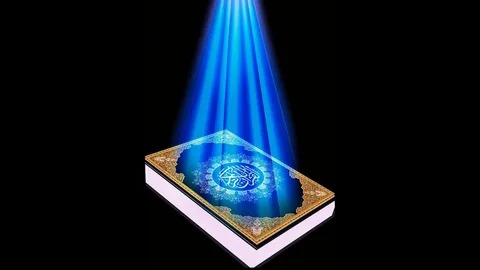Last Updated on January 28, 2024 by Arabian Tongue Team
Jinn, mystical beings with roots in various cultural and religious traditions, have captured human imagination for centuries. From Islamic theology to folklore and mythology, these entities have been portrayed in diverse ways. One intriguing aspect that what language does jinn speak. In this article on Arabian Tongue website, we’ll delve into the mysteries surrounding the language of jinn, exploring its origins, diversity, and cultural impact.
Origins of Jinn

The origins of jinn vary across cultures. Some believe they are created from smokeless fire, while others associate them with supernatural forces. Understanding these diverse beliefs provides a rich backdrop for exploring the intricacies of jinn language.
Jinn in Islamic Tradition
In Islamic tradition, jinn hold a unique place. The Quran makes numerous references to these beings, describing them as creatures created from “smokeless fire.” While the Quran doesn’t explicitly mention the language of jinn, scholars have inferred aspects of their communication from various verses.
Jinn in Folklore and Mythology
Beyond Islamic tradition, jinn feature prominently in the folklore and mythology of different cultures. Some portray them as mischievous tricksters, while others depict them as benevolent or malevolent entities. These diverse cultural perspectives contribute to the mystique surrounding jinn language.
what language does jinn speak
The question of whether jinn speak a specific language has intrigued many. Unlike humans who communicate through spoken language, jinn are believed to possess a unique form of communication that transcends linguistic boundaries.
Language Diversity Among Jinn
It is suggested that the language of jinn may vary based on cultural context. In some tales, jinn are said to speak the language of the people they interact with, adding an element of cultural diversity to their communication.
The language of jinn is often described as perplexing and mysterious. Scholars and mystics have attempted to decipher its nuances, but the enigmatic nature of jinn communication persists.
The belief in jinn is rooted in various cultural and religious traditions, particularly in Islamic folklore. While the concept of jinn may vary among different cultures, protecting oneself from perceived supernatural entities often involves a combination of religious, spiritual, and cultural practices. Here are some general suggestions that people may follow based on their beliefs:
- Religious Practices:
- Recitation of Verses: In Islam, reciting certain verses from the Quran, such as Ayat al-Kursi (Surah Al-Baqarah 2:255) and the last two verses of Surah Al-Baqarah, is believed to offer protection.
- Regular Prayers (Salah): Performing the five daily prayers is seen as a means of seeking protection from supernatural entities.
- Spiritual and Cultural Practices:
- Talisman or Amulets: Some people use religious talismans or amulets believed to contain protective verses or symbols.
- Burning Incense or Herbs: In some cultures, burning certain types of incense or herbs is thought to purify the environment and ward off negative entities.
- Wearing Protective Charms: Wearing items like a piece of iron, certain gemstones, or charms believed to have protective properties is common in some cultures.
- Maintaining Personal Hygiene:
- Regular Cleaning: Keeping oneself and one’s living space clean is often emphasized as a means of preventing negative spiritual influences.
- Avoiding Forbidden Practices:
- Avoiding Black Magic and Forbidden Occult Practices: Engaging in or seeking protection from forbidden practices is generally discouraged.
- Seeking Professional Help:
- Religious Scholars or Clerics: Seeking guidance from religious scholars or clerics who can provide advice, prayers, or spiritual assistance.
It’s important to note that beliefs and practices surrounding protection from jinn vary widely, and what works for one person or community may not be applicable to another. Additionally, individuals may choose different methods based on their personal beliefs and cultural backgrounds.
If someone is experiencing psychological distress or believes they are being affected by supernatural entities, it is advisable to seek help from mental health professionals or religious leaders who can provide appropriate guidance and support.
what are jinns scared of
FAQs
Can humans learn the language of jinn?
While there are claims of individuals having learned to communicate with jinn, the authenticity of such experiences is widely debated.
Do jinn understand human languages?
Cultural beliefs vary, with some suggesting that jinn can understand and speak the languages of the people they interact with.
Is there a written form of the jinn language?
No conclusive evidence supports the existence of a written form of the jinn language.
Can jinn communicate with each other across different cultures?
The diverse portrayals of jinn suggest that their ability to communicate may transcend cultural boundaries.
How has modern media shaped the perception of jinn language?
Modern literature and movies have contributed to diverse interpretations of jinn language, often depicting them with multilingual abilities.
Conclusion
In conclusion, the language of jinn remains a captivating enigma. From its diverse origins to the perplexing burstiness of communication, exploring the intricacies of jinn language adds depth to our understanding of these mystical beings. While many questions linger, the cultural impact and historical significance of jinn language persist, weaving a fascinating narrative through the ages.


